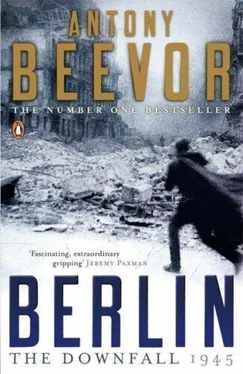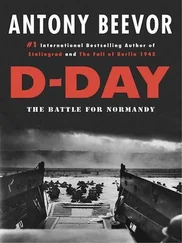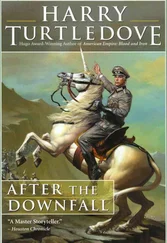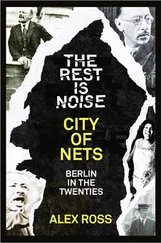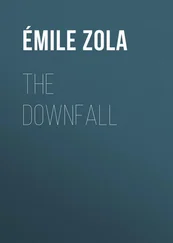American leaders had another reason for not opposing Stalin. They did not yet know whether the atomic bomb would work, so they desperately wanted to bring Stalin into the war against Japan. It did not seem to occur to them that it was also very much to Stalin’s advantage to come in as a victor to the spoils after the fighting was virtually over.
At the first session, which began shortly afterwards, Stalin graciously proposed that President Roosevelt should chair the meetings. The Soviet leader was wearing the medal of Hero of the Soviet Union with his uniform of Marshal of the Soviet Union. The striped trousers were tucked into boots of soft Caucasian leather. These boots had built-up heels because he was extremely conscious of his short stature. Stalin also avoided bright lights wherever possible because they showed up the pockmarks on his face. All official portraits were heavily retouched to conceal such imperfections.
General Antonov, the Soviet chief of staff, gave an impressive-sounding account of the situation, but both American and British chiefs of staff sensed that it was short on detail. The British especially felt that information between allies appeared to be a one-way traffic. Antonov also claimed that the date of their great offensive had been brought forward to assist the Americans and British. General Marshall, for his part, underlined the effect of Allied bombing on German war industry, rail communications and fuel supplies, all of which had greatly assisted the Soviet Union in its recent successes. The mood of the meeting became almost ugly when Stalin deliberately twisted things said by Churchill, and Roosevelt had to intervene.
That evening at dinner, the generally amicable mood was again threatened by Soviet remarks demonstrating total contempt for the rights of small nations. Roosevelt, hoping to lighten the atmosphere, told Stalin that he was popularly known as ‘Uncle Joe’. Stalin, who had clearly never been informed of this by his own diplomats, was insulted by what he regarded as a vulgar and disrespectful nickname. This time, Churchill stepped in to rescue the situation with a toast to the Big Three — an expression of self-congratulation to which Stalin could not fail to respond. But he took this as another opportunity to re-emphasize the point that the Big Three would decide the fate of the world and that smaller nations should have no veto. Both Roosevelt and Churchill failed to see the implication.
The next morning, Monday 5 February, the American and British combined chiefs of staff met with the Stavka team led by General Antonov. The Stavka particularly wanted pressure to be exerted in Italy to prevent German divisions being withdrawn for use in Hungary. This was perfectly reasonable and logical in itself, but it may have also been part of the Soviet attempt to persuade the Americans and British to concentrate their efforts more to the south, well away from Berlin. But both General Marshall, the American army chief of staff, and Field Marshal Sir Alan Brooke, the Chief of the Imperial General Staff, warned the Stavka quite openly that they could not prevent the movement of German formations from one front to another, apart from stepping up air raids on railways and communications centres.
The crux of the whole conference became apparent that afternoon and on the following day. The discussion began with the immediate post-war period and the treatment of defeated Germany. Victory was estimated to take place at any time from the summer onwards. Roosevelt talked about the European Advisory Commission and future zones of occupation. Stalin made it clear that he wanted Germany to be completely dismembered. Then Roosevelt announced without warning that United States forces would not remain in Europe for more than two years after Germany’s surrender. Churchill was privately appalled. This would only encourage Stalin to be more obdurate, and a war-ravaged Europe might well be too weak to resist Communist unrest.
Stalin also made clear that he intended to strip German industry as a down payment in kind towards the Soviet Union’s claim for $10 billion in reparations. He did not mention it at the conference, but government commissions composed of Soviet accountants looking very awkward in new colonels’ uniforms were closely following each army in its advance. Their task was ‘the systematic confiscation of German industry and wealth’. In addition, the NKVD group at each army headquarters had a team specialized in opening safes, preferably before a Soviet soldier tried to blast the door off with a captured panzerfaust, destroying everything inside. Stalin was determined to extract every ounce of gold he could.
The one issue which both Stalin and Churchill felt passionately about was Poland. The debate was not so much over the future frontiers of the country, but over the composition of its government. Churchill declared that a fully independent Poland, the very reason for which Great Britain had gone to war in September 1939, was a question of honour.
Stalin in his reply referred very obliquely to the secret clauses of the 1939 Nazi-Soviet pact, which had allowed the Soviet Union to invade and occupy the eastern part of Poland and the Baltic states while the Nazis seized the western half. ‘It is a question of honour,’ Stalin said, standing up, ‘because the Russians have committed many sins against the Poles in the past, and the Soviet government wishes to make amends.’ After this shameless opening, considering the Soviet oppression in Poland already under way, Stalin went to the heart of the matter. ‘It is also a question of security, because Poland presents the gravest of strategic problems for the Soviet Union. Throughout history, Poland has served as a corridor for enemies coming to attack Russia.’ He then argued that to prevent this, Poland had to be strong. ‘That is why the Soviet Union is interested in the creation of a mighty, free and independent Poland. The Polish question is a question of life and death for the Soviet state.’ The flagrant mutual contradiction of the last two sentences was obvious. Although it was never stated openly, the Soviet Union would accept nothing less than a totally subservient Poland as a buffer zone. Neither Churchill nor Roosevelt could fully appreciate the shock of the German invasion in 1941 and Stalin’s determination never to be surprised by another enemy. One could well argue that the origins of the Cold War lay in that traumatic experience.
Churchill nevertheless realized that he stood no chance when Stalin invoked the necessity of securing the Red Army’s lines of communications in the approaching battle for Berlin. The Soviet leader played his cards very cleverly. The provisional ‘Warsaw government’, as he insisted on calling it — the Americans and British still referred to these NKVD-controlled Communists as the ‘Lublin government’ — was in place and, he claimed, highly popular. As for democracy, he argued, the Polish government in exile in London possessed no more democratic support than De Gaulle enjoyed in France. One cannot know for sure whether Churchill properly decoded the unspoken message: you must not thwart me over Poland, because I have kept the French Communist Party under control. Your lines of communication have not been disturbed by revolutionary activity in France by the Communist-dominated resistance movement.
To rub in the point about respective spheres of influence, Stalin asked disingenuously how things were in Greece. The Soviet leader, on the basis of the so-called ‘percentage’ agreement of the previous October, apportioning spheres of influence in the Balkans, had undertaken not to cause trouble in Greece and to respect British control there. At Yalta, Stalin appears to have been signalling that both Poland and France should be considered as an extension of the percentage agreement, but the British Prime Minister failed to decipher the text. Field Marshal Sir Alan Brooke suspected at the time that there was much that Churchill did not take in.
Читать дальше
